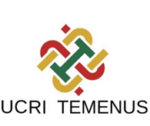The EU Peer Review programme promotes an integrated approach to disaster risk management and supports a wider policy dialogue across Europe and beyond, improving policy coherence and facilitating the exchange of good practices on civil protection and disaster risk management.
UCPM Peer Review Programme
- Guidance material
- Peer Review Assessment Framework
- Wildfire Peer Review Assessment Framework
- Peer-reviewed countries
- Most recent Peer Reviews
- Peer Review reports
- More information
What is it?
A peer review of disaster risk management and civil protection systems provides a country or a region with a unique opportunity to reflect on its readiness to cope with natural hazards and human-induced disasters and to identify ways of strengthening its prevention and preparedness policy and practices. It also facilitates the exchange of good practices.
The Peer Review programme is a tool made available to civil protection authorities of Member States, participating states, enlargement and neighbourhood countries under the EU Civil Protection Mechanism (UCPM) legislation. It is managed by the Commission’s Civil Protection and Humanitarian Aid department.

How does it work?
The Peer Review programme is carried out in close partnership between the Commission, the team of peers (civil protection experts and practitioners selected for the specific review), and the relevant authorities of the country/region under review. The Euro-Mediterranean Centre for Climate Change (CMCC), based in Italy, is currently supporting the programme as technical consultant.
The peers prepare a report, including an overview of the situation, and identified good practices and recommendations for improvement, based on desk research and in-country discussions.
The civil protection authorities of the country under review have an opportunity to review and comment the report during its drafting. The review is completed when the final report including recommendations and good practices is released.
Depending on the administrative organisation and responsibilities at various levels across the Member States and the UCPM Participating States, a peer review may be undertaken at national and/or regional level.
In the course of 2025 to 2027 the Commission will carry out up to six peer reviews. In preparation for the 2025-2027 peer review cycle, a Lessons Learnt workshop was held in Brussels 14 November 2024 with the participation of representatives of recently reviewed countries/regions and the peers conducting these reviews. The objectives of the workshop were to share experiences from the five reviews in the 2022-2024 cycle and exchanging ideas on how to refine and improve the methodology and how to enhance the impact of future reviews. Summary and presentations from the Lessons Learnt workshop here.
Guidance material
To guide the peer review process for both the country/region under review and the peer team, the following key documents are available:
Peer Review Assessment Framework
The Peer Review Assessment Framework (PRAF) describes the disaster risk management thematic areas that are to be reviewed. The seven thematic areas are: disaster risk reduction governance, risk assessment, risk management planning, risk prevention, risk preparedness, emergency response, recovery and lessons learned.
The host country or region can choose all or a subset of the thematic areas to define the scope of their respective peer review.
The document also assists the structuring and drafting of the peer review report.
Analytical Assessment Framework for a Peer Review
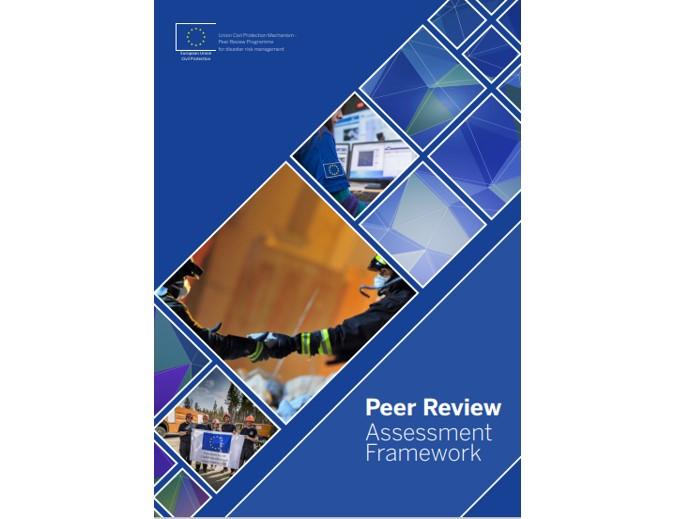
Wildfire Peer Review Assessment Framework
Building on the general PRAF, the Wildfire Peer Review Assessment Framework (Wildfire PRAF) is a tool designed to facilitate thematic reviews of wildfire risk management systems, within the framework of the Union Civil Protection Mechanism. Its focus is on the risk associated with large-scale unplanned or uncontrolled wildfire fires affecting natural, cultural, industrial, and residential landscapes.
The framework also serves as a self-assessment tool for countries and regions to analyse their own systems for wildfire risk management.
Wildfire Peer Review Assessment Framework (Wildfire PRAF)
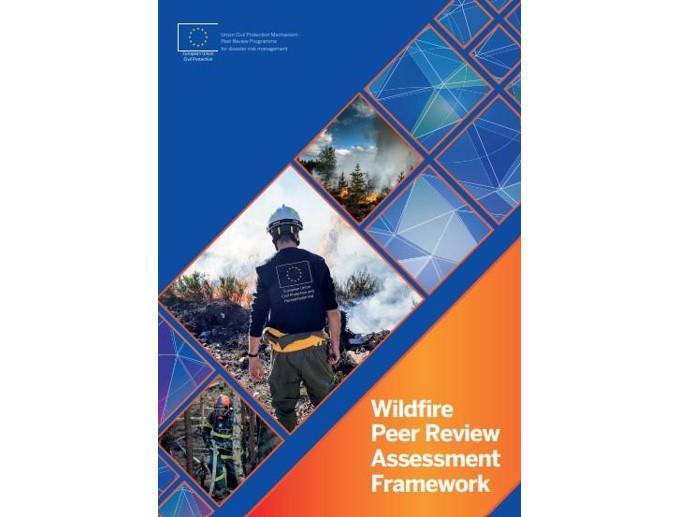
Peer Review Guidelines
This document provides the essentials for an effective peer review, clarifying the principles that drive the process, the roles and responsibilities of the different actors involved, the workflow to be followed and the tools available.
Peer Review Programme Guidelines
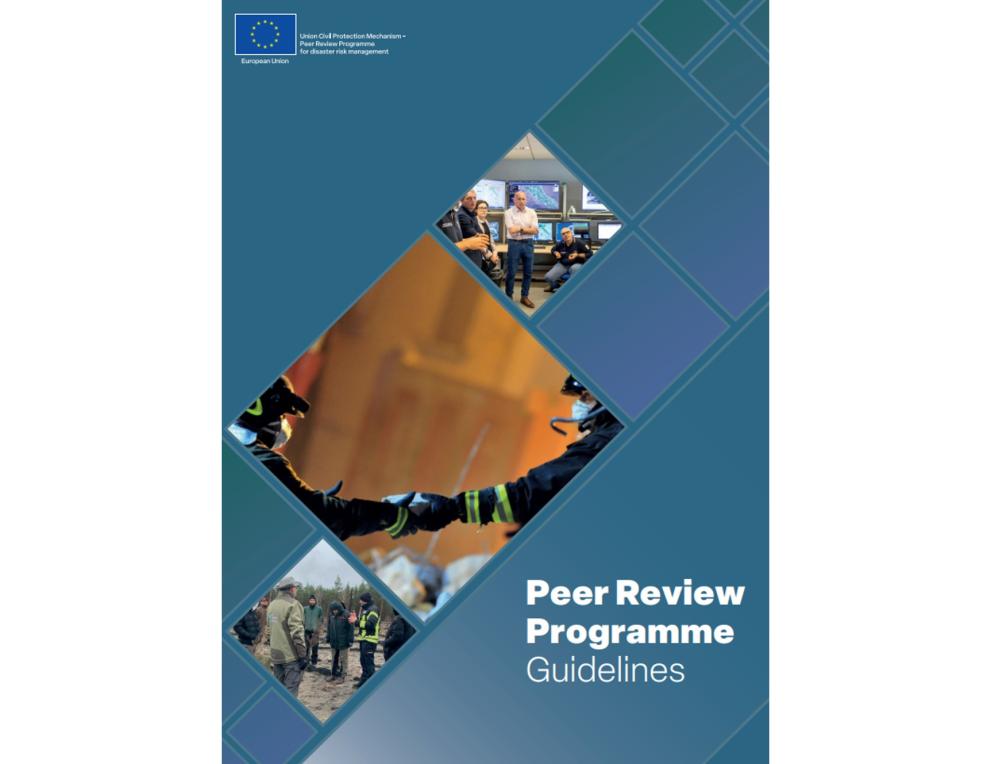
Peer-reviewed countries
To date, 18 countries and one region have benefitted from a peer review: the United Kingdom, Finland, Bulgaria, Georgia, Türkiye, Estonia, Malta, Poland, Cyprus, North Macedonia, Tunisia, Serbia, Algeria, Portugal, Romania, Republic of Moldova, Greece, Italy and Land Brandenburg (DE). Below are links to the peer review reports so far published.
Most recent Peer Reviews
Italy
The Italian civil protection department (DPC) requested in September 2023 a peer review of their wildfire risk management capabilities. The review mission took place over a week in May 2024 with the participation of 5 peers (from ES, CZ, FR and 2 x PT) supported by DG ECHO. The review focused on the overall wildfire risk governance as well as the preparedness and the response phases. Special attention was devoted to analysing the coordination and the collaboration synergies between the national and the regional level.
The report is now published and handed over to the Italian authorities by the European Commissioner for Preparedness, Crisis Management and Equality Ms Hadja Lahbib during an event in Rome 24 January.
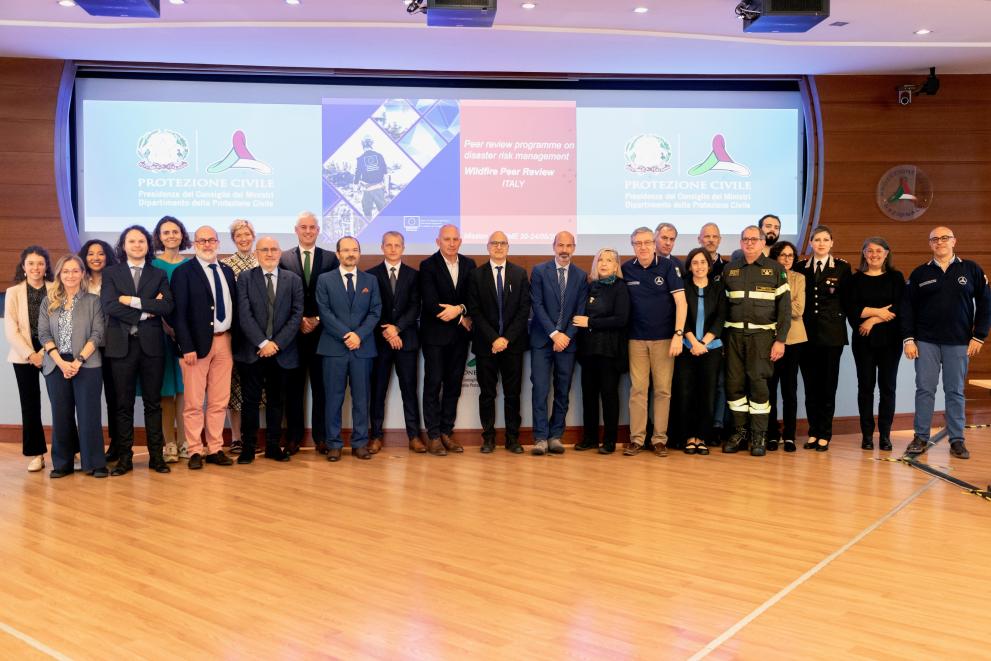
Greece
The Greek civil protection authorities (GSCP) requested a wildfire-specific peer review in September 2023. As the 17th country to be reviewed under the UCPM peer review programme Greece, is the first country to pilot the Wildfire Peer Review Assessment Framework. GSCP assigned the Hellenic Fire Corps and the Ministry of Environment and Energy as the review’s national focal points.
The key topics of the review were:
‒ Governance of wildfire risk management: overall governance as well as the legislative and institutional framework;
‒ Wildfire prevention: legislative framework, landscape management, innovation and knowledge services, awareness and risk communication;
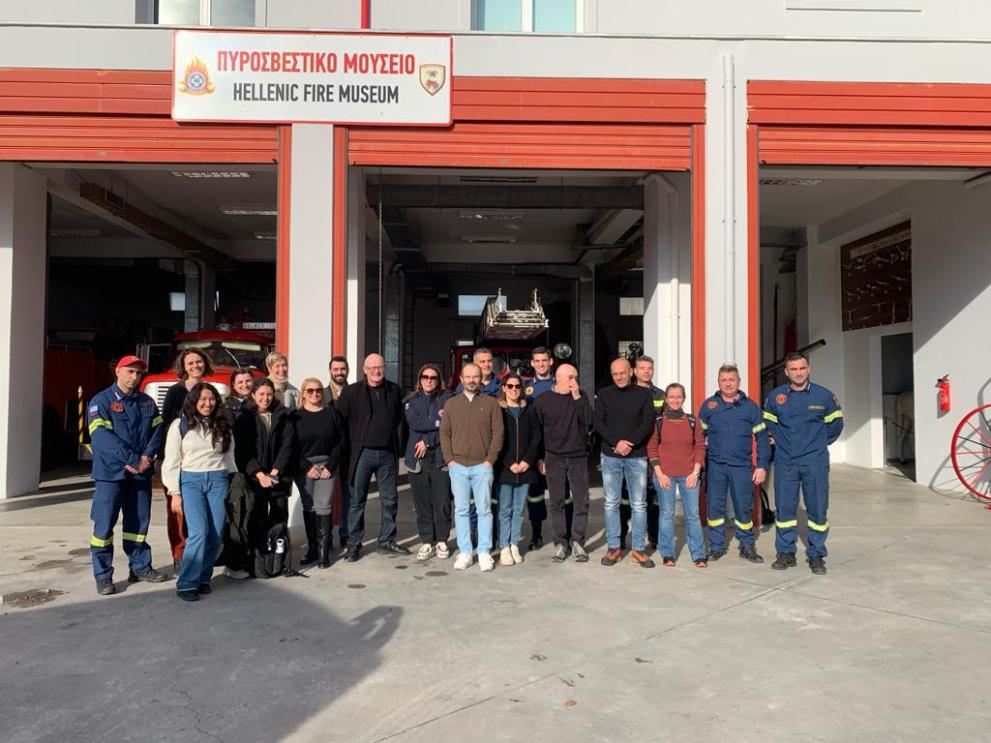
‒ Wildfire preparedness: legislative framework, training-exercises-international exchanges, response capacities;
‒ Wildfire response: legislative framework, response operations, response coordination.
The on-site review mission took place in and around Athens during a full week end January 2024 with a team of peers from Portugal, Spain, France, Norway and OECD and the report is now published.
Peer Review reports
| Country | Date | Review | Report |
| Italy | 2024 | Thematic – Wildfire Risk Management | en |
| Greece | 2024 | Thematic – Wildfire Risk Management | en |
| Moldova | 2023 | Comprehensive Disaster Risk Management | en |
| Romania | 2023 | Thematic peer review on disaster risk management governance and prevention | en |
| Serbia | 2019 | Comprehensive Disaster Risk Management | en |
| Algeria | 2019 | Comprehensive Disaster Risk Management | fr |
| Portugal | 2019 | Comprehensive Disaster Risk Management | en |
| Cyprus | 2018 | General Disaster Risk Management | en |
| North Macedonia | 2018 | Comprehensive Disaster Risk Management | en |
| Tunisia | 2018 | Comprehensive Disaster Risk Management | en – fr |
| Estonia | 2016 | Risk management capabilities | en |
| Malta | 2016 | Risk assessment | en |
| Poland | 2016 | Risk assessment | en – pl |
| Bulgaria | 2015 | General Disaster risk management | en – bg |
Source: European Union Civil Protection Knowledge Network
